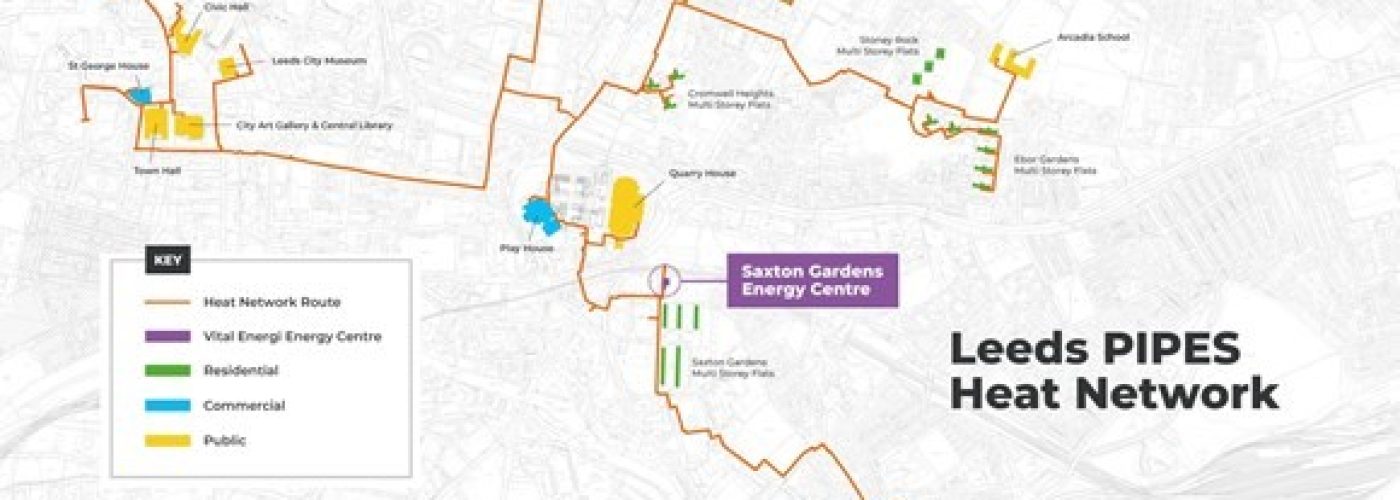Senior councillors have approved plans to invest £7.2 million extending the city’s flagship district heating network by 2500 metres so that more buildings can enjoy the benefits of reliable, affordable, and low carbon heating.
The £47 million Leeds PIPES network supplied 13,900 MWh of low carbon heat in 2021 and continues to grow. It is set to become one of the UK’s largest heat networks.
Five new extensions will see the Leeds PIPES district heating network expand into new areas of the city.
The council has identified at least nine sites that will be able to connect because of the approved extensions—potentially using another 11,600 MWh of sustainable heat every year.
By using heat and energy recovered from non-recyclable waste at the Recycling and Energy Recovery Facility (RERF) to provide hot water to buildings in the city, the network offers a reliable and significantly lower carbon alternative to traditional fossil fuel powered heating systems.
The scheme currently supplies heat recovered from the waste of approximately 10,700 Leeds households saving more than 2,000 tonnes of carbon from being emitted in 2021.
Buildings and new developments located near the network can choose to connect at any time. Almost 2,000 homes, commercial and public buildings have already connected to the scheme.
The project has also helped employ more than 430 people in the local low carbon sector including 36 apprentices.
Energy used to heating and power buildings is responsible for around a quarter of the UK’s carbon emissions. In its ‘Heat and buildings strategy’ published last year, the UK Government set out how low carbon heat networks will play an increasingly significant role as the country tackles climate change.
New regulations are expected to be introduced by 2025 which will give councils the power to require certain existing buildings and new developments to connect to networks in pre-defined zones. Leeds City Council is now working with government to test the methodology used to establish these zones before a wider rollout.
Councillor Helen Hayden, Leeds City Council’s Executive Member for Infrastructure and Climate, said:
“Our city’s waste-powered district heating network is a great example of an innovative scheme that supports our long-term net zero carbon ambitions whilst enabling residents and businesses to enjoy reliable and affordable heating now.
“Economically, the planned expansion is also a fantastic investment for the council as well as those privately connecting. As the wholesale price of gas rises and as more and more building managers and developers seek to reduce their carbon footprint, our district heating offer has become even more competitive.”
Mike Cooke, Managing Director (North & Scotland) of Vital Energi, said:
“As a result of visionary investment and working collaboratively with partners, Leeds PIPES has very quickly established itself as one of the UK’s major heat networks.
“As the network continues to grow it becomes more efficient and accessible to potential connections, enabling the transition from fossil fuels to deliver more carbon savings and contribute to a cleaner, greener Leeds.”
A report to executive board with the recommendations approved by councillors on Wednesday can be read online.





